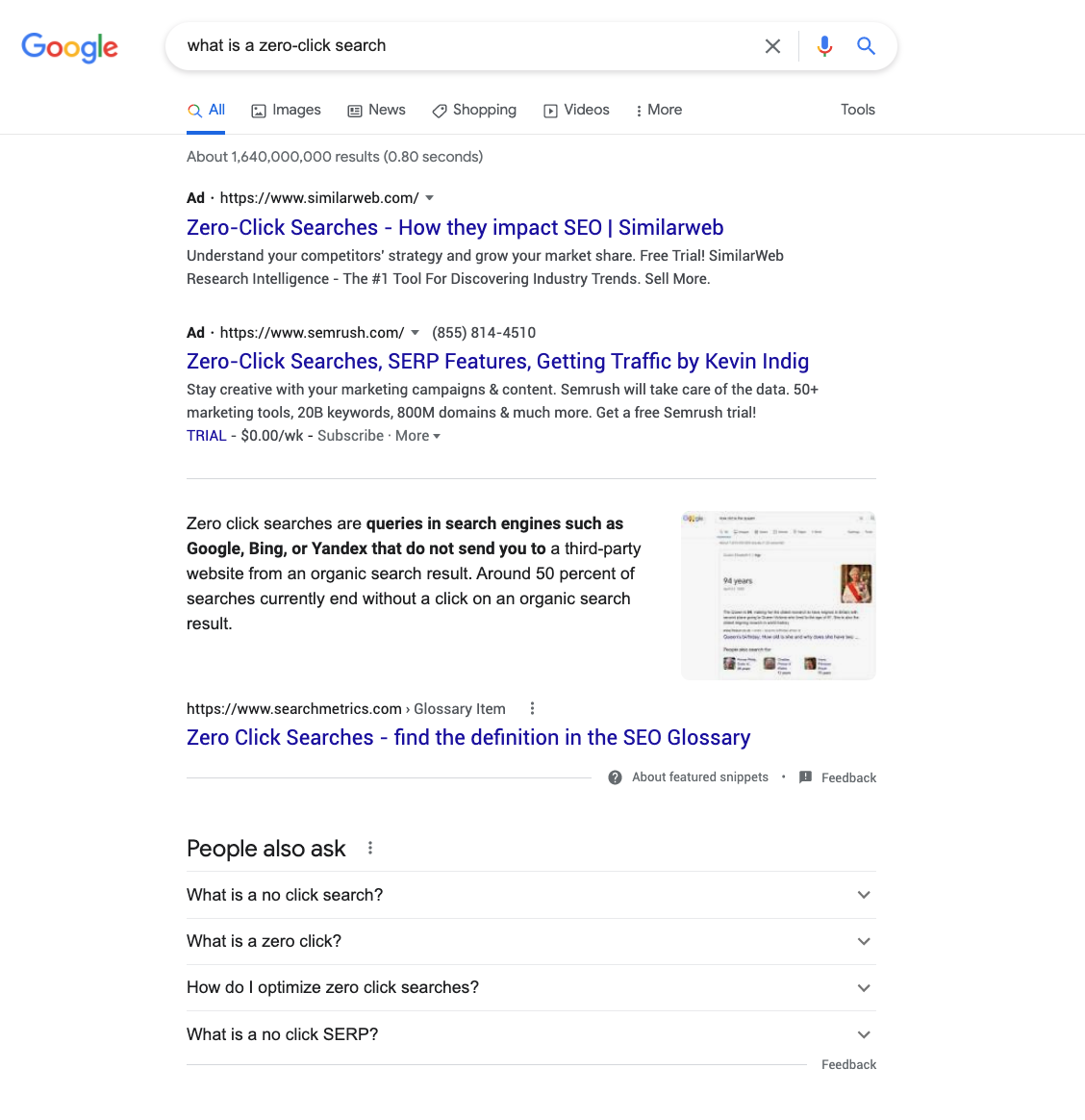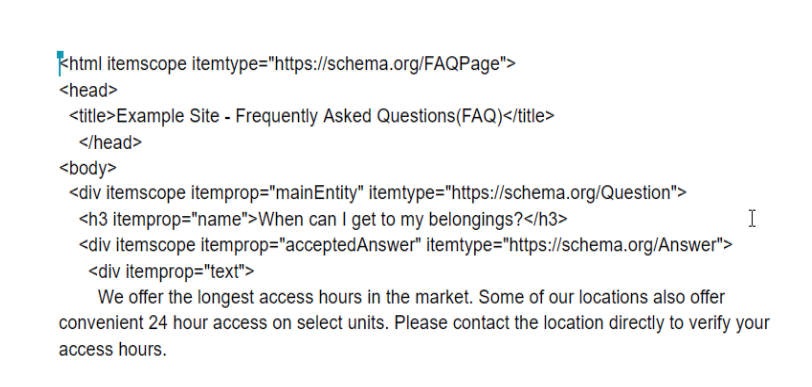
From Zero to Hero: Leverage Zero-Click Search Strategy to Answer Questions Fast
Repeat after us: renters and residents want answers to their questions — fast. By fast, we mean quicker than Usain Bolt can run 100 meters, speedier than Jimmy Johns can deliver a sub sandwich, swifter than marketing had to pivot in 2020. You get it, in the age of the on-demand, needed-it-yesterday-consumer, there’s no waiting around.
The search for the perfect place begins the moment a renter or resident searches on Google. They might type in something like “Apartments, storage units, or senior living near Forest Park, Portland, Oregon.” For a long-winded question, online searchers want succinct answers. We believe in meeting our researching customers where they are, online, on a search engine results page (SERP), with answers to their questions. The good news is, Google agrees.
If your website provides trustworthy, relevant information to researching renters, you’re more likely to show up in relevant search results. Keep reading to learn more about zero-click searches and how they fit into your SEO strategy.
What Is a Zero-Click Search?
When you compete against a trip to the grocery store for the title of cook-from-home-with-no-groceries-top-chef, do you Google something like “what can you substitute for basil?”
If so, then you probably saw on the SERP a short blurb about using oregano, or Italian spice mix as substitutions. And then, you went back to listening to a pod and cooking. Did you click on the search results to verify? Nah.
That, top chef, is a zero-click search that took you from zero to kitchen hero in a matter of seconds. Zero-click searches have the potential to do the same for your marketing, but it takes some website prowess, or a best-in-class website provider, to make it happen.

Zero-click searches appear at the top of a SERP, above even the organic results. They answer questions without needing the searcher to click through to your website, hence the name zero-click. This can be in the form of featured snippets, photos, knowledge graphs, videos, the local map pack, and other above-the-fold SERP real estate.
Zero-click searchers’ questions are often resolved in the SERP. Which for quick questions like name, address, phone number, is great.
For more complex decision-making like “where should I live next? Where do I store my family heirlooms? Or, what senior living community would my mom be happy in?,” you might want the searcher to do a bit of a deeper dive on your website. Meaning you need a searcher that clicks. So think like a searcher, and share content that is worth a searcher’s time and attention.
Website Content Strategy: People Also Ask…
No one:
Influencers: I just wanted to hop on here because everyone’s been asking me about…
Dude, no one asked…don’t be tone-deaf. Instead, answer questions and provide information people actually need and want. How do you know people are curious and want the info? Check out the screenshot above. On Google’s SERP, right under the featured snippet, is an area with examples of search queries people also ask. This is a great way to know what kinds of questions researching renters and residents want and need to know.
And, while it’s helpful to answer these questions on your website, in order to pop up in the featured snippet section on a zero-click search, you also need to use schema markup. Schema markups are coded signals to show search engines that there is a specific kind of information within the content, such as a question, or an answer. Check out the example code below, here there are clear schema markup code snippets telling search engines, like Google, “Hey Google, here is a question!!!” And, “Hey Google, here is an answer to that question!!”

When you take the time to markup your website content, you’re making sure that you’re not only creating websites that researching renters and residents can read, but also content that is built to be compatible with screen readers, and assistive technology.
One last thing about featured snippets, they’re short. Featured snippets are on average 40-50 words in length. Basically, they answer questions and aren’t the next great American novel.
Website Content Strategy: GMB Q + A
Google My Business (GMB) accounts for 7.1% of overall search engine ranking signals, and 33% of the ranking signals for the local pack. To be blunt, it’s an important part of your marketing strategy, but something that often gets overlooked is that GMB also influences your website’s overall SEO. GMB isn’t set-it-and-forget-it unless you want Google to forget about you, too. Stay up to date with new GMB features, respond to reviews, answer questions, and make sure you’re optimizing your GMB listing. This will absolutely impact other areas of your marketing — and SEO — strategy.
Now that we’ve got the “why GMB?” question out of the way, let’s dive into GMB Q + A content strategy, like the H3 title. Rule number one, just like reviews, respond to questions in the Q + A section on your GMB listing and create interaction here by seeding questions. Does your sales team get asked the same questions over and over again? Answer these frequently asked questions in an easy-to-find place — like your GMB listing.
SEO Strategy: Google Search Console
Just as a refresher XML and HTML sitemaps allow search engines to understand the content and structure of your website. This helps search engines like Google serve up relevant content to researching renters and residents. These sitemaps are a foundational SEO best practice, not a thing of the past, like keyword stuffing.
Having an XML sitemap is excellent, and is a better format for search engines than an HTML sitemap. You can even take it one step further, and upload your XML sitemap to the Google Search Console. This process basically notifies Google that you think they should crawl, and index, your website. It’s a great idea to do periodically as websites change and are updated. By uploading the XML sitemap, you’re keeping Google on top of these changes as well.
Strategy Solved
Take on zero-click searches as an opportunity to get strategic with your content, and uplevel your foundational SEO best practices. Learn more about the G5 approach to SEO that creates clicks.
Get News, Articles & Updates in Your Inbox
Thank You for Your Interest
We will be in contact soon and look forward to learning more about you and your company. Based on your marketing challenges, we’ll discuss increasing visibility into your analytics and how to generate more and better leads so you can achieve your marketing goals.
In the meantime, we invite you to check out our checklist on website accessibility. Use this checklist to start assessing the baseline accessibility of your website.
Enjoy! We’ll be in touch very soon.
